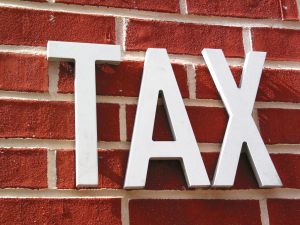 Real property tax is the tax that is derived from the value of real estate property, which include all land and any permanent structures that are attached to the land. This is how various governments, such as cities and counties raise money to pay for things like road maintenance, fire safety and police protection, among other services. The value of the real estate property tax is assessed by a tax assessor. Real estate property that is owned by the government or a religious organization is exempt from property taxes. There may be other partial exemptions granted for real estate property tax in some cases, like those granted to veterans.
Real property tax is the tax that is derived from the value of real estate property, which include all land and any permanent structures that are attached to the land. This is how various governments, such as cities and counties raise money to pay for things like road maintenance, fire safety and police protection, among other services. The value of the real estate property tax is assessed by a tax assessor. Real estate property that is owned by the government or a religious organization is exempt from property taxes. There may be other partial exemptions granted for real estate property tax in some cases, like those granted to veterans.
The market value of real estate property tax is used to determine the tax assessment. The real estate property tax assessor, who is either elected or appointed to office, uses various methods to determine the market value of a property. For residential property, the comparison method is used for real estate property tax, which looks at the sale prices of properties that are similar to it. Different methods are used to determine the market value of commercial property and the outlining real estate property tax. Real estate property tax is always assessed at the value of the current use of the property. If a real estate property owner feels that the assessment of their real estate property tax is unfair, there are usually channels to go through within a government or municipality to request a re-assessment of the real estate property tax.
Once the real estate property tax is assessed, a tax rate is then based upon the tax levy, which is based on the budget of the government or municipality, minus any other income such as aid from the state, or sales tax income. The rest of the budget must be gained in the payment of real estate property tax, and is called the tax levy.
The government or municipality may assess real estate property tax at less than 100 percent of it’s market value. Usually there is a uniform percentage which is applied to all of the real property within a government. If the percentage, is 1 percent, for example, and the market value of a house and land is $200,000, the assessment for that property would be $2,000. The tax rate for that property would be measured by dividing the tax levy by the assessed value of real property within that municipality. The amount of the real estate property tax bill is based on the assessment and the tax rate, which is in turn determined by the tax levy. Real estate property tax paid by a homeowner can be deducted annually when filing an income tax return.
Image Credit: http://www.sxc.hu
You may also like to read:
